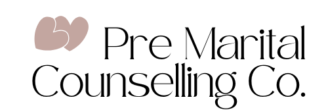
Understanding the Role of Individual Counseling for Relationship Concerns
When it comes to improving relationships, many people focus on couples therapy or seeking relationship advice. However, individual counseling for relationship concerns can also play a crucial role in creating stronger partnerships. While couples therapy addresses the dynamics between two people, individual counselling works on personal growth and emotional health, which directly impacts relationships. In this article, we’ll explore how individual counselling can help improve your relationship.
1. Gaining Personal Insight
Individual counselling for relationship concerns helps you explore your emotions, past experiences, and behaviours. Therapy offers a safe space to uncover deep-rooted issues that influence how you behave in relationships. For example, past trauma or learned patterns can affect how you communicate or deal with conflict. Gaining personal insight into these factors allows you to address them and build a stronger foundation in your relationship.
2. Developing Emotional Intelligence
Emotional intelligence is essential in any relationship. Individual counselling helps you increase your self-awareness and recognise emotional triggers. By understanding your feelings, you can respond thoughtfully instead of reacting impulsively. This leads to better communication and less emotional escalation. As you grow emotionally, your ability to connect with others—especially your partner—will improve.
3. Strengthening Self-Esteem and Confidence
Low self-esteem can lead to relationship struggles. Whether it’s fear of rejection or feelings of inadequacy, individual counselling can help you work through these challenges. As you build your self-confidence, you will feel more secure in yourself and your relationship. Counselling helps you understand your worth, enabling you to approach your relationship from a place of strength.
4. Breaking Negative Patterns
Negative behavioural patterns often carry over into relationships. People-pleasing, avoiding conflict, or suppressing emotions are common examples. These behaviours can cause stress and tension in relationships. Individual counselling for relationship concerns helps you identify and break these unhealthy patterns. With the help of your therapist, you can develop new strategies for dealing with stress, communicating more effectively, and engaging in healthier behaviours.
5. Healing from Past Trauma
Unresolved trauma can affect your ability to connect with others. Whether it stems from past relationships or childhood experiences, trauma can cause issues like trust problems or emotional withdrawal. Individual counselling offers a safe, structured environment to heal from these past wounds. Therapy helps you process your emotions and move forward in a healthy way, which improves your current relationships.
6. Empowering You to Communicate Better
Effective communication is key to a healthy relationship. Many people struggle with expressing themselves clearly, or they may feel unheard. Individual counselling helps you develop essential communication skills like active listening, assertiveness, and empathy. As you improve your communication, your ability to express your needs and listen to your partner’s needs will improve, leading to a stronger connection.
7. Setting Healthy Boundaries
Setting boundaries is crucial in any relationship. Without clear boundaries, relationships can become unbalanced or unhealthy. Individual counselling for relationship concerns helps you explore your needs and limits. It also teaches you how to communicate these boundaries effectively. By setting healthy boundaries, you protect your emotional well-being while maintaining a strong connection with your partner.
8. Increasing Relationship Satisfaction
Ultimately, individual counselling can increase your overall satisfaction with your relationship. As you work through personal concerns, you become better equipped to contribute positively to your partnership. When you improve your emotional resilience, communication skills, and self-awareness, your relationship becomes more fulfilling. Both you and your partner will benefit from the personal growth you experience in counselling.
9. Navigating the Decision to Leave an Unhealthy Relationship
Sometimes, individual counselling for relationship concerns can help you realise that a relationship may no longer be serving your well-being. If you are in a relationship that feels unhealthy or even toxic, counselling provides a safe space to reflect on whether it is time to move on. It can help you assess your feelings, identify patterns of abuse or dysfunction, and clarify your needs. This process not only allows you to make an informed decision but also provides the support necessary to navigate this difficult transition. Whether you’re considering separation or simply need guidance on how to leave, counselling ensures you have the emotional tools and clarity to move forward in a healthy way.
To Conclude...
Individual counselling for relationship concerns is a powerful tool for improving both your personal well-being and your relationship. Through personal insight, emotional intelligence, and healthier communication, you can create a stronger, more connected partnership. Therapy can help you break negative patterns, heal from past trauma, and build self-confidence—all of which lead to better relationships. If you’re ready to improve your relationship, individual counselling may be the key to making lasting, positive changes.
Ready to take the first step toward a healthier relationship? Whether you’re struggling with past trauma, communication issues, or low self-esteem, Kaela Sussman, Registered Counsellor, is here to help. Contact us today to schedule a session and start your journey toward a stronger, more fulfilling relationship
